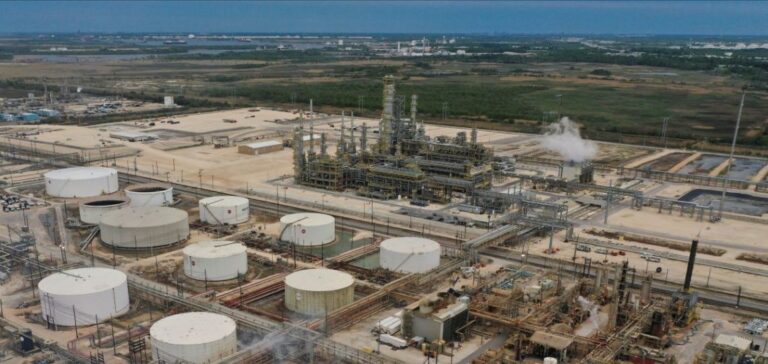US crude oil inventories recorded a fourth consecutive week of decline, with a total loss of over 24 million barrels since the end of June.
This decline is mainly attributed to a slight reduction in imports (-2.3%) and an increase in exports (+5.6%).
A statistical adjustment also contributed to this reduction, aimed at correcting approximations from previous periods, without reflecting actual market activity for the week concerned.
The contrast between the drop in inventories and the slowdown in refineries is notable.
US refineries operated at 91.6% of capacity, compared with 93.7% the previous week, their lowest level for two months.
However, this slowdown in refining comes at a time when shipments of refined products jumped by 8.2%, signalling growing demand.
Impact on Refined Products
Gasoline volumes rose by 7.6%, reaching their highest level in eight months.
Kerosene demand was also strong, up 22%, reflecting a significant upturn in the air transport sector.
As a result, gasoline inventories fell by 5.6 million barrels, far more than analysts had anticipated.
Oil production in the United States remained stable at 13.3 million barrels per day, an all-time record.
Despite these fluctuations in inventories and demand, oil prices showed little reaction, with a barrel of West Texas Intermediate (WTI) for September delivery gaining 0.71% to reach $77.51 at 15:00 GMT.
Analysis and outlook
The continuing decline in crude oil inventories could indicate stronger-than-expected demand, despite the drop in refinery activity.
This suggests a complexity in oil market dynamics, where demand for refined products appears to be rising, even as crude production and imports remain relatively stable.
Strong demand for kerosene and gasoline could be a sign of a more robust economic recovery, particularly in the mobility and transportation sectors.
It could also reflect a response to earlier disruptions in supply chains or seasonal changes in demand.
The reduction in US crude oil inventories highlights complex and evolving trends in the energy market.
This situation requires ongoing monitoring to understand the long-term implications for producers, refiners and consumers.






















